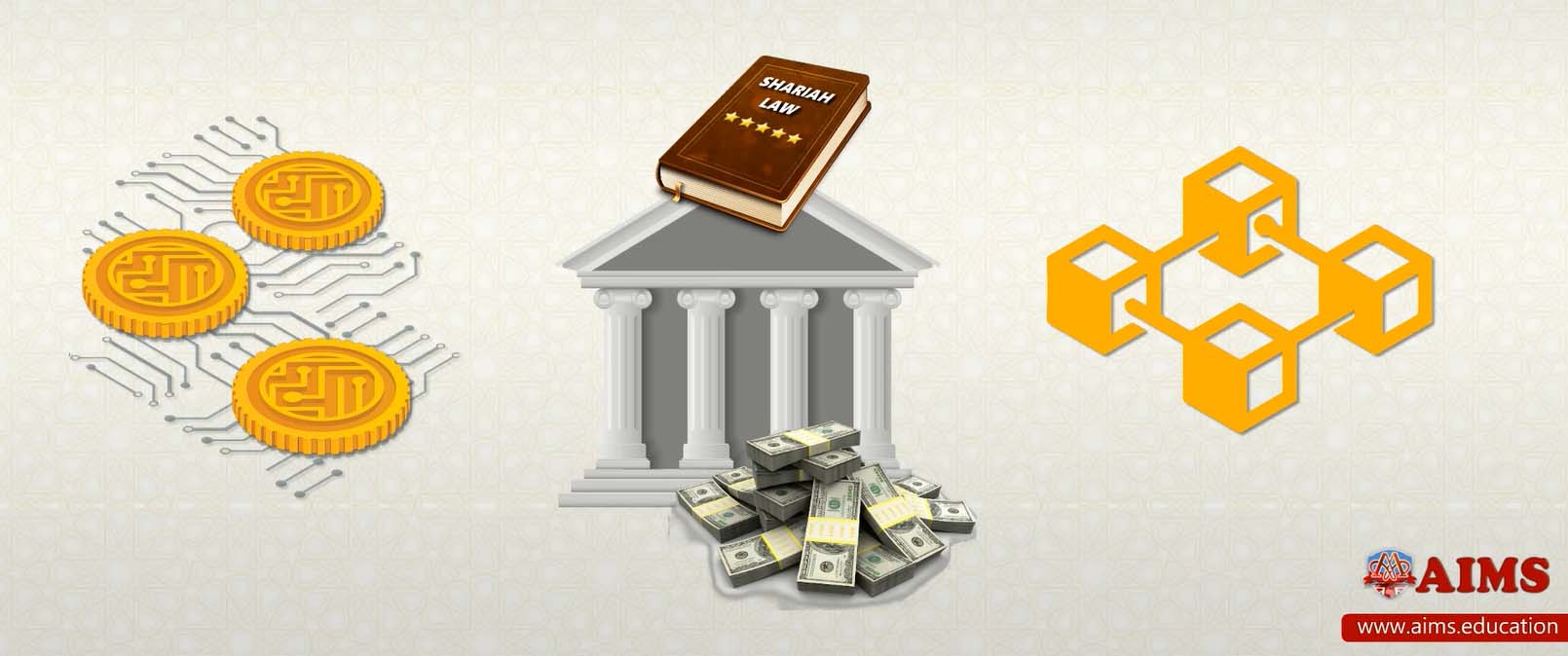Cryptocurrency and Islam
Cryptocurrency, particularly Bitcoin, has been gaining popularity in the world of finance and investment. However, for Muslims, there is a concern about its compliance with Islamic principles. The question remains: Is crypto haram or halal? There are many Muslims around the world who are interested in knowing the true fatwa on cryptocurrency, especially the Bitcoin halal fatwa, so they can consider using it. Cryptocurrency and comparative digital forms of money satisfy the monetary jobs of cash – going about as a medium of trade, a unit of record, and a store of significant worth – and trying to gain the status of “standard cash”. Before we dive into if is cryptocurrency is halal or haram, let’s first understand what it is.
What is Cryptocurrency?
Cryptocurrency is an innovative form of digital asset that operates on a technology called blockchain. A blockchain is a decentralized technology spread across multiple computers (nodes) that manages and records transactions. Part of the appeal of this technology is its security. The core idea behind cryptocurrencies is to provide a setup where any two involved parties can transact directly with each other without the need for a trusted third party, like a bank or government.
How Does Cryptocurrency Work?
In cryptocurrency setup, transactions are managed by a network of computers worldwide, each transaction is stored in a ‘block‘ and these blocks form a ‘chain‘, hence the term ‘blockchain’. This cryptographic chain of blocks is almost impossible to alter, providing a level of security for the transaction.
Cryptocurrency as Money in Islam
Islamic Shariah perceives standard cash as being anything that adds money-related status through wide acknowledgment in the public eye or by government command. In Germany, digital currency is perceived as lawful cash and, in this manner, qualifies as cash in Germany. In nations, for example, the US, a cryptocurrency needs official lawful financial status yet is acknowledged for installment by an assortment of traders, and along these lines qualifies as standard cash.

Is Crypto Haram or Halal? 7 Key Concerns
Several reasons point to the potential prohibition of crypto trading in Islam:
1. Element of Gharar
Firstly, the element of uncertainty or “Gharar,” is particularly prevalent in cryptocurrency trading. Cryptocurrencies are infamous for their volatility, and the unpredictable nature of their value is akin to maysir or gambling, which is explicitly forbidden in Islam.
2. Anatomy of Transactions
Secondly, the anonymity of transactions in the crypto world raises serious ethical issues. It can potentially facilitate illegal activities such as money laundering or financing for illicit purposes, which are indisputably haram.
3. Involvement of Riba
Thirdly, the concept of “Riba,” or usury, might be at play in certain crypto transactions. Some cryptocurrencies yield interest or profits over time, akin to traditional banking practices, which are forbidden in Islam.
4. Non-Tangible Nature
The non-tangible nature of cryptocurrencies may contradict the Islamic finance principles of having a physical commodity or asset underlying financial transactions. This lack of physicality raises questions about the intrinsic value of cryptocurrencies and their validity as a medium of exchange in Islamic finance.
5. High Risk Investment
Adding to the concerns, cryptocurrency’s status as a high-risk investment is a significant point of contention. In Islam, financial practices that involve excessive risk or speculative behavior are generally discouraged, and the drastic fluctuations in the values of cryptocurrencies may fall into this category.
6. Crypto Isn’t Money
Another point to consider is that cryptocurrency isn’t classified as money in the traditional sense. Unlike conventional currencies, cryptocurrencies are not issued or regulated by any central authority. This brings up the question of whether cryptocurrencies align with the Islamic understanding of a legitimate currency, which ideally should be widely accepted, stable, and backed by the trust of its users.
7. Unregulated Nature
Lastly, the unregulated nature of cryptocurrencies poses a significant challenge. Without regulation or oversight from financial authorities, the crypto market is subject to potential manipulation and fraudulent financial practices, both of which are in direct contravention of the principles of fairness and integrity emphasized in Islamic finance. This lack of control and accountability further complicates the classification of cryptocurrency as halal or haram.

Is Cryptocurrency Halal or Haram? Fatwa of Scholars
The Islamic Canonical Law, prominently known as Sharia depends on the lessons of the Quran and denies certain exercises, for example, acknowledgment of particular premium which is viewed as usury (Riba) or interests in organizations which are in opposition to Islamic acknowledgment for instance liquor. Late enthusiasm for Islamic managing an account has ascended with even the International Monetary Fund’s official board holding the first since forever dialog on Islamic Banking.
“Currencies are originally a medium of exchange, and making them a tradable commodity for profit earning is against the philosophy of Islamic economics. In Shariah, there is no valid reason to accept Bitcoin or other Cryptocurrencies as a currency. It is just an imaginary number, which is generated through a complex mathematical process. It is purchased for Gharar or Speculations, and used in illegal or unlawful transactions”.
Mufti Taqi Usmani!
“Here is my fatwa on cryptocurrency, as today’s widely asked questions are: is crypto halal or is crypto haram; or if crypto trading halal or haram. In my opinion, the trading in cryptocurrency is haram. This is because it is not approved by legitimate bodies, such as Treasury Departments of States, as an acceptable interact of exchange. Such currencies leads to esae in contrabands trade & money laundering, and they are amounted to Gambling“.
Mufti Shawki Allam!
“Since crypto currencies are open to speculations, mostly used for illegal deads, and far from state auditing and supervision; their trading is not appropriate at this point, in the light of Shariah”.
Directorate of Religious Affairs Turkey!
“In my opinion on is cryptocurrency halal or haram, I would say that crypto remain anonymous when you deal with it. Cryptocurrencies facilitate money laundering, drug money and haram (forbidden) money. Hand to hand exchange of currencies are permissible in Islam, however, in virtual currencies you don’t have this.”.
Shaykh Assim al-Hakeem!

Cryptocurrencies and Shariah Compliance
Even though premium, venture, and theory in Bitcoin and digital money have kept on soaring upward, there is developing disarray among Muslims – who make up almost a fourth of the total populace – concerning whether Bitcoin and cryptographic forms of money conform to Shariah law. Shariah law is an arrangement of tenets pursued by Muslims as per the rules of the Quran and lessons of the Prophet Muhammad, peace arrives.
The Islamic fund segment, which offers money-related items to Muslim people and Islamic foundations, sticks to Shariah law. The same is the case of Islamic or halal mortgages – a clear comprehension of digital money and blockchain keeps on developing in significance as experts progressively perceive that blockchain will change each zone of the worldwide budgetary framework similarly the web changed media and distribution.
Is Crypto Halal or Haram? Final Remarks:
According to most Islamic jurists, crypto halal or crypto haram concepts are not going to be resolved easily. Some rules consider crypto halal while others consider the crypto haram. However, the MAJORITY OF SCHOLARS ARE SURE THAT TRADING IN CRYPTO IS HARAM BECAUSE:
- It has no value in and of itself.
- Neither any economic strength gives it value nor it returns an origin of some sort.
- It has not been adopted by any legitimate government entity.
- Its value is only based on the fluctuation of the market.
- They are used for gambling and other such tasks that are considered haram in Muslim Law.
Muslims need to educate themselves, seek guidance from knowledgeable sources, and shouldn’t engage in any form of cryptocurrency trading or investment. Ultimately, it is a responsibility of a Muslim to ensure that one’s actions align with the teachings of Islam. At the end of the day, our intention should always be to please Allah (SWT) and follow His guidance in all matters.
Frequently Asked Questions
Q1: What do scholars mean by crypto being halal or haram?
They evaluate whether cryptocurrencies align with Shariah rules on money, trade ethics, and avoiding gharar, maysir, and riba.
Q2: Why do some scholars consider crypto haram?
High volatility, anonymity risks, riba-like products, lack of tangible backing, and weak regulation are common reasons.
Q3: How is cryptocurrency assessed as money in Islamic finance?
Money should be widely accepted or legally recognised; where crypto lacks this, scholars question its status.
Q4: Is Bitcoin halal according to all scholars?
No. Opinions vary; many caution against trading due to gharar, speculation, and misuse concerns.
Q5: What is gharar and maysir in the context of crypto?
Gharar is excessive uncertainty; maysir is gambling-like speculation—both can be triggered by volatile trading.
Q6: How can riba appear in crypto products?
Interest-like or guaranteed yields detached from real trade/assets may resemble riba and be impermissible.
Q7: Do regulation and legal tender status matter?
Yes. Strong oversight and recognition reduce fraud/manipulation risks and improve legitimacy.
Q8: Is all crypto usage treated the same in Shariah?
No. Speculative trading is treated more strictly than limited, transparent utility use.
Q9: What should I do if I’m unsure about crypto’s permissibility?
Consult qualified scholars, study the product mechanics, avoid leverage, and prioritise legal, transparent use.
Q10: Why does the crypto halal/haram debate continue?
Because technology, regulation, and adoption keep changing, scholarly analysis is ongoing.
